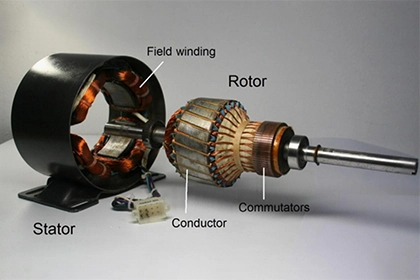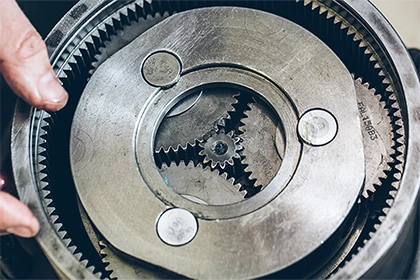
Can I connect dc motor directly to battery?
DC motors are widely used in a variety of applications, but during use, some people wonder about the possibility of connecting a DC motor directly to a battery.
DC motors are widely used in various applications, from small hobby projects to large industrial machines. One common question that arises is whether it is safe and efficient to connect a DC motor directly to a battery. In this essay, we will explore the pros and cons of connecting a DC motor directly to a battery and provide a comprehensive guide to help you make an informed decision.
The Pros of Connecting a DC Motor Directly to a BatteryOne of the main advantages of connecting a DC motor directly to a battery is simplicity. It is a straightforward and easy way to power a DC motor without the need for additional components such as a motor controller or power supply. Additionally, connecting a DC motor directly to a battery can provide high torque and power output, making it ideal for applications that require high performance.
The Cons of Connecting a DC Motor Directly to a Battery
While connecting a DC motor directly to a battery may seem simple and convenient, it also has some drawbacks. One of the main concerns is the risk of overloading the motor. Without a motor controller or power supply, the motor may draw too much current from the battery, leading to overheating and damage to the motor. Additionally, connecting a DC motor directly to a battery may result in poor speed control and efficiency, as the motor may not be able to maintain a constant speed or operate at optimal efficiency.
Factors to Consider When Connecting a DC Motor Directly to a Battery
If you decide to connect a DC Motor directly to a battery, there are some important factors to consider. First, ensure that the battery voltage is compatible with the motor's voltage rating. Overvoltage can cause damage to the motor, while undervoltage can result in poor performance. Additionally, consider the current draw of the motor and ensure that the battery can provide enough current without overheating or damaging the motor. Finally, consider the application requirements and whether connecting the motor directly to a battery is the most efficient and safe solution.
Alternatives to Connecting a DC Motor Directly to a Battery
If you are concerned about the risks and drawbacks of connecting a DC motor directly to a battery, there are alternatives to consider. One option is to use a motor controller, which can regulate the motor's speed and current draw, ensuring optimal performance and efficiency. Another option is to use a power supply, which can provide a stable and regulated voltage and current to the motor, reducing the risk of damage and improving performance.
Conclusion
Connecting a DC motor directly to a battery can be a simple and convenient solution for powering a motor, but it also has some drawbacks and risks. Consider the factors outlined in this essay, such as voltage compatibility, current draw, and application requirements, when making your decision. If you are concerned about the risks and drawbacks, consider alternatives such as a motor controller or power supply. By making an informed decision, you can ensure the optimal performance and longevity of your DC motor.



Leave a Comment